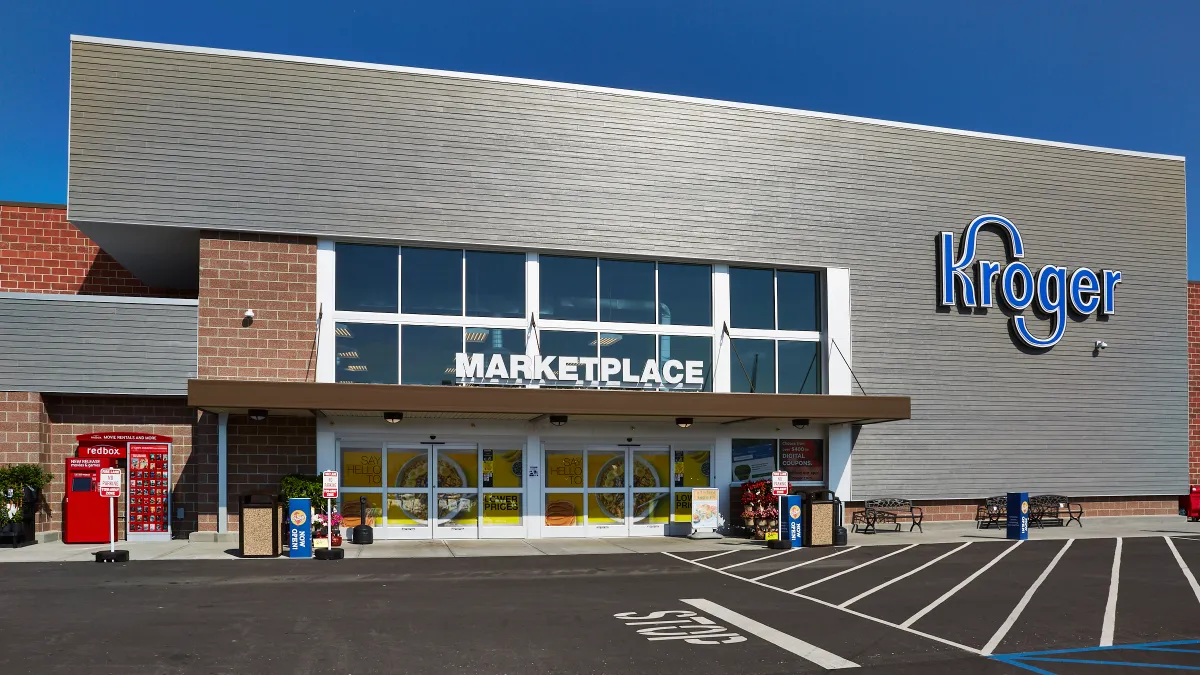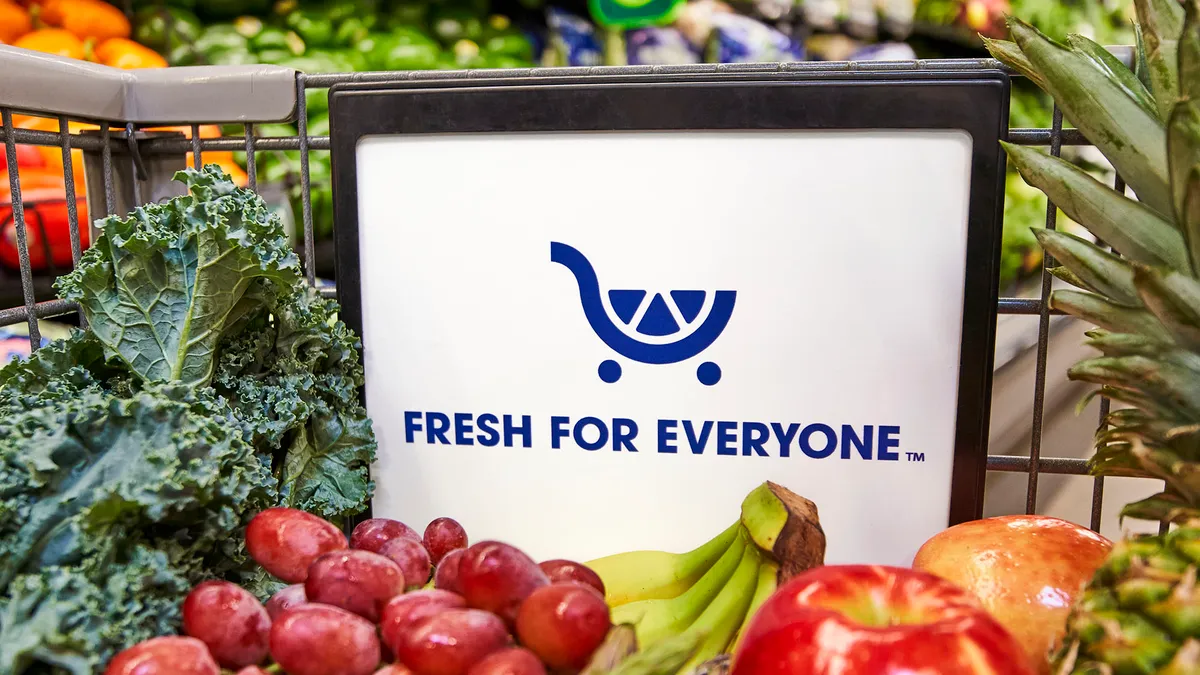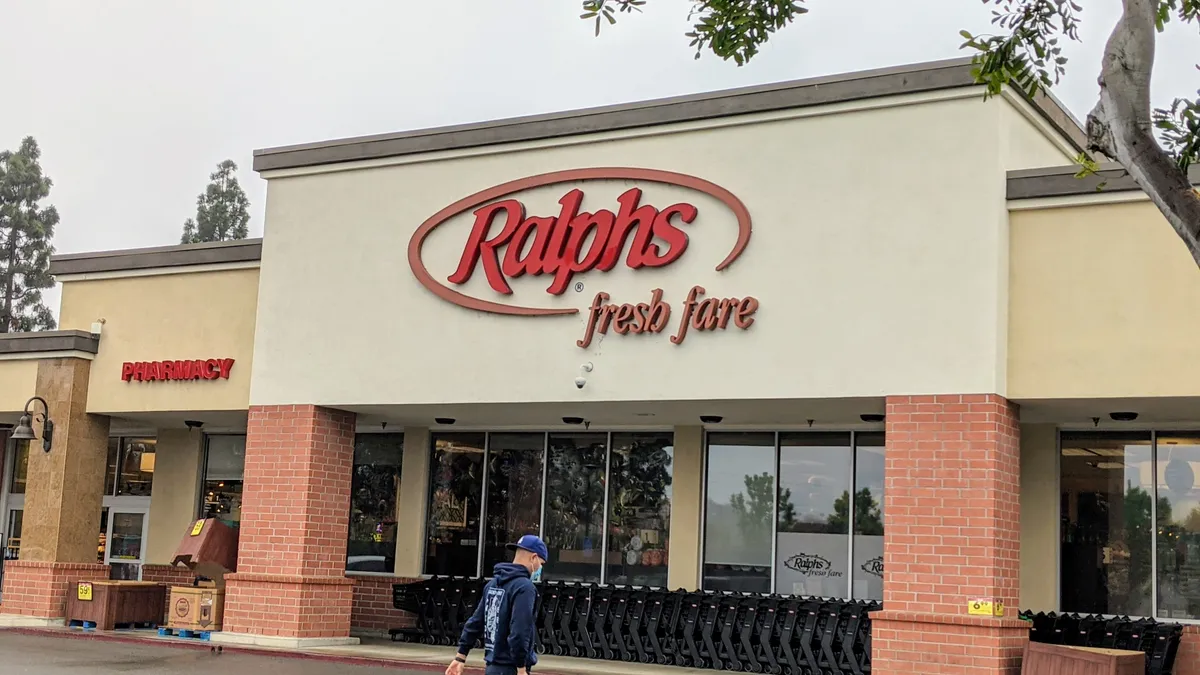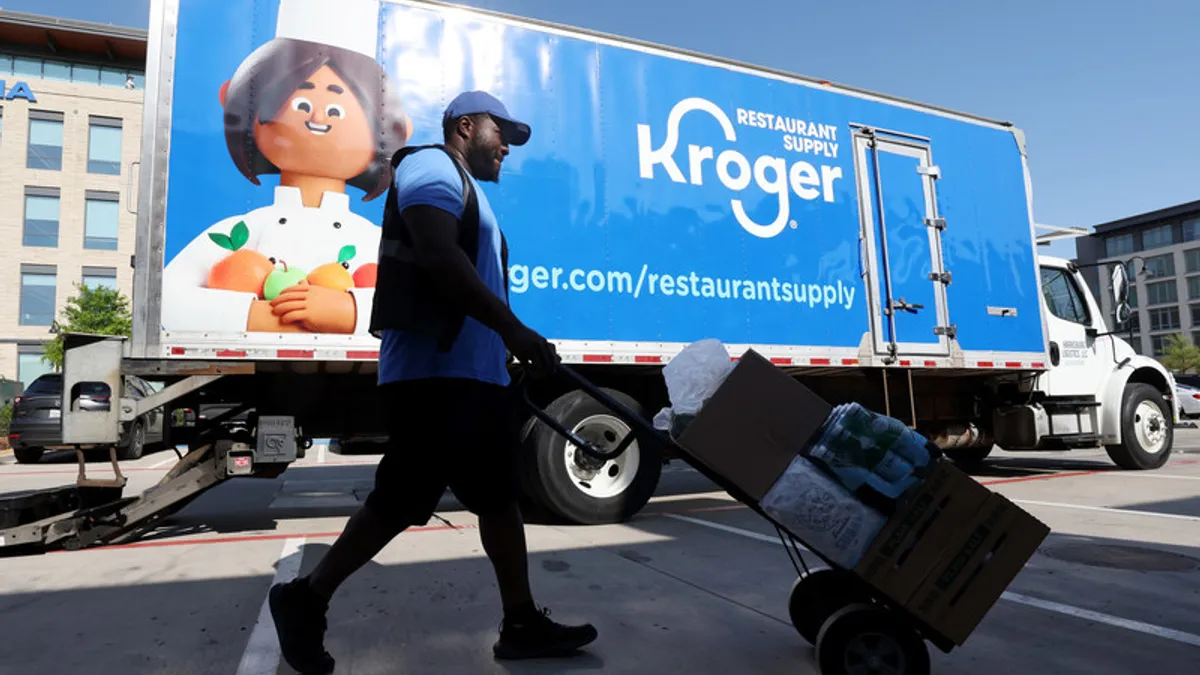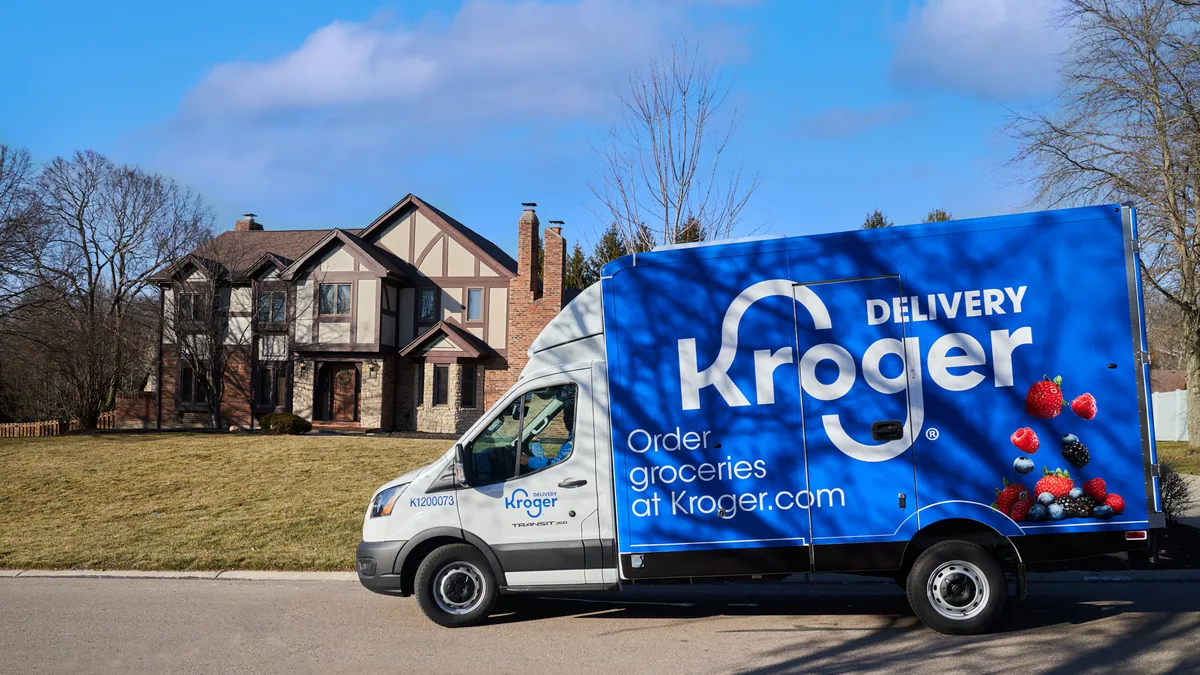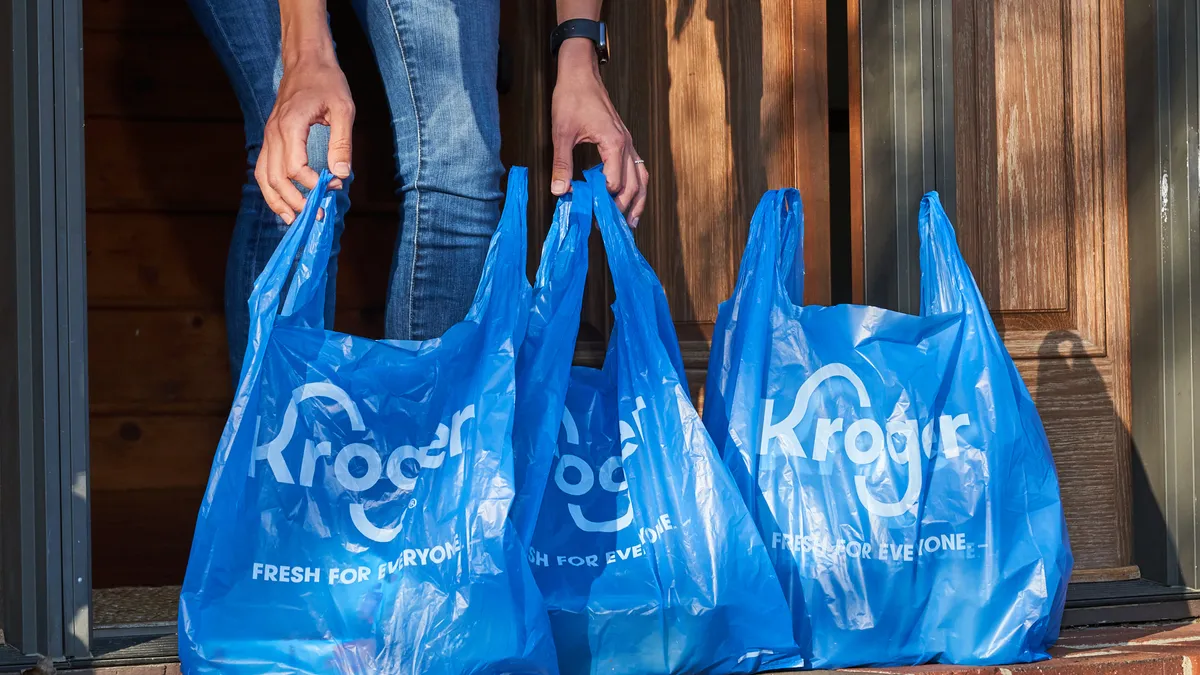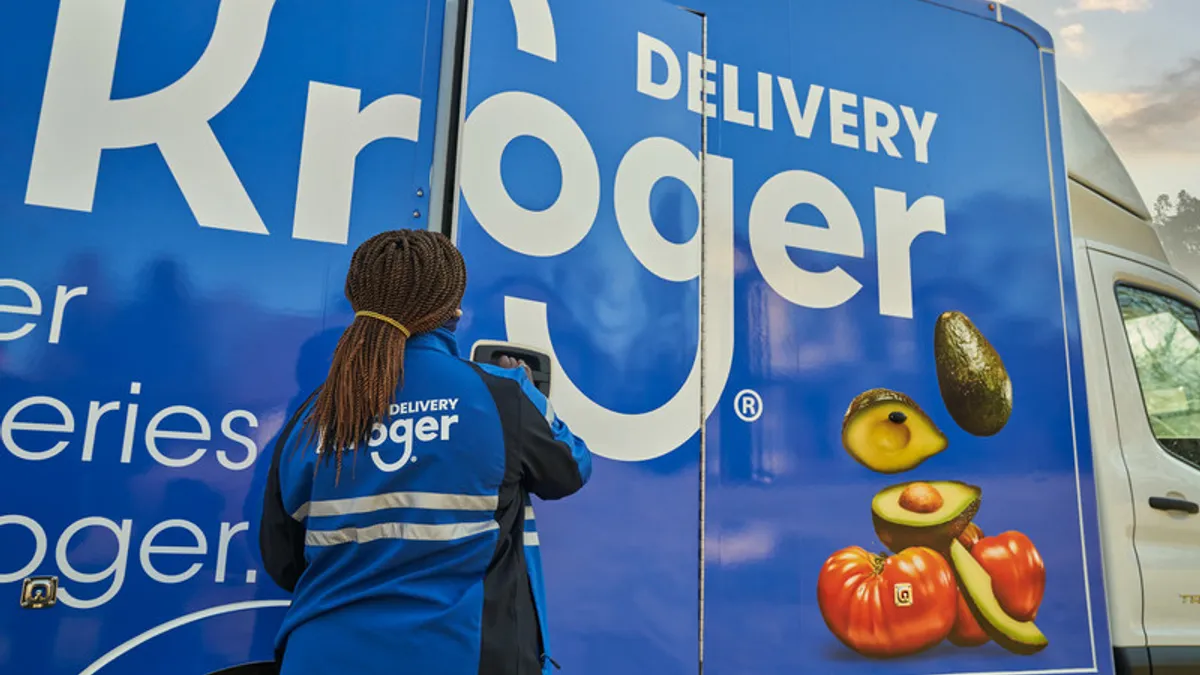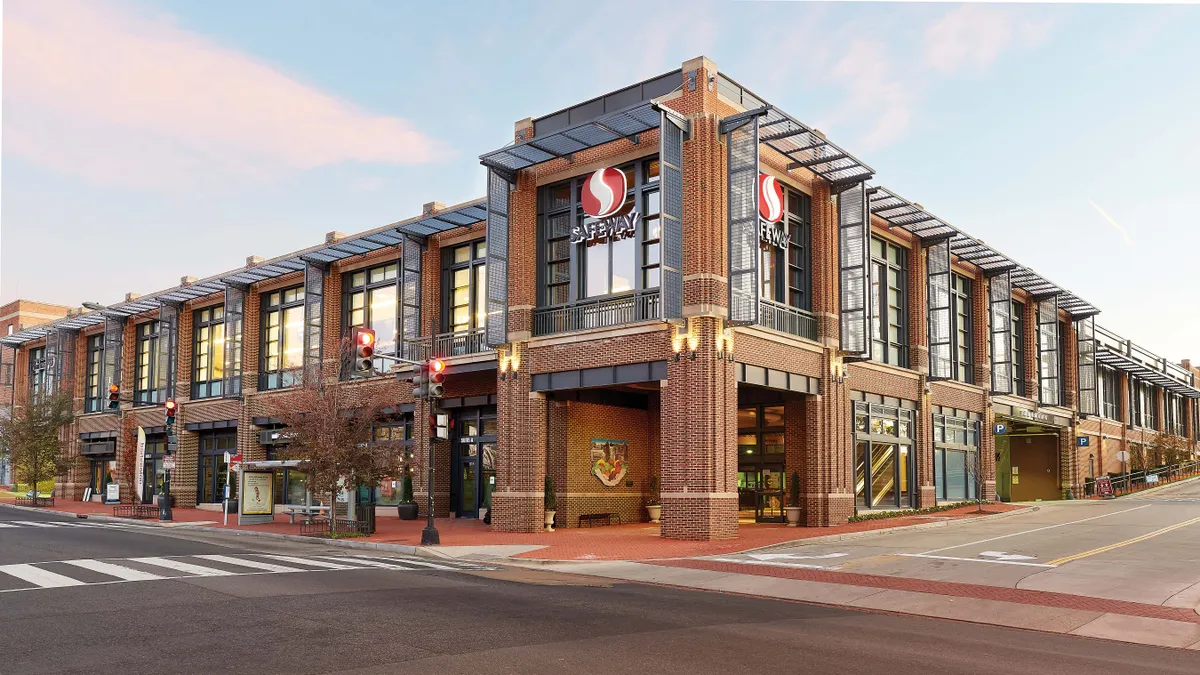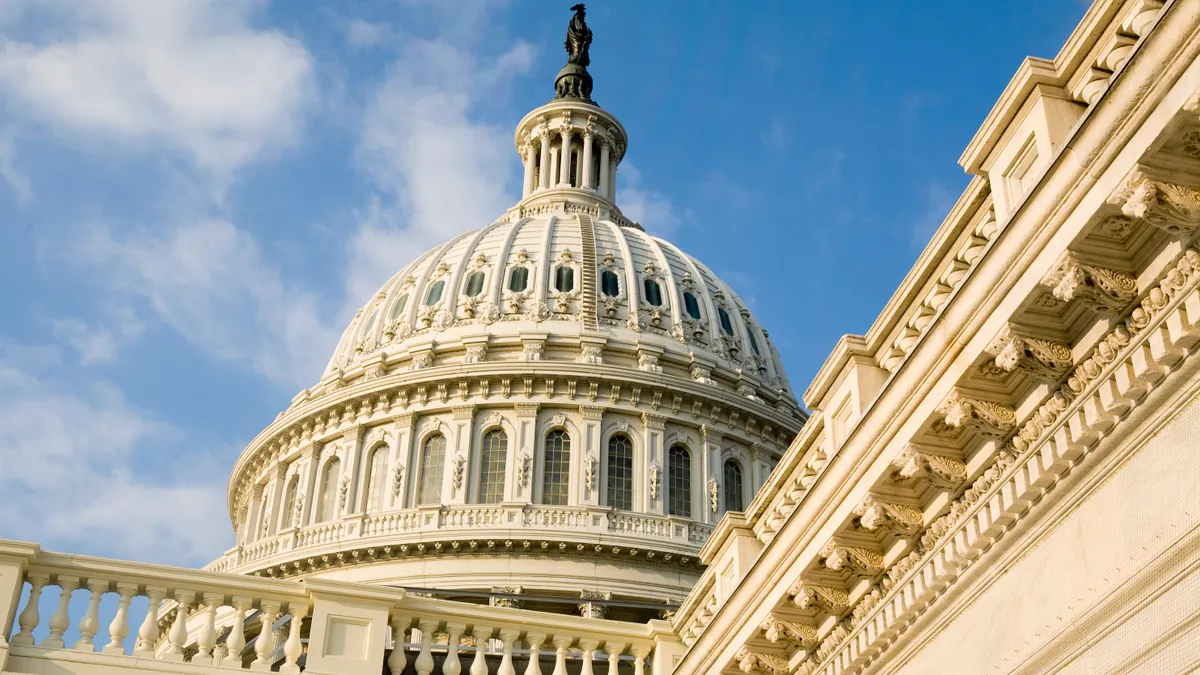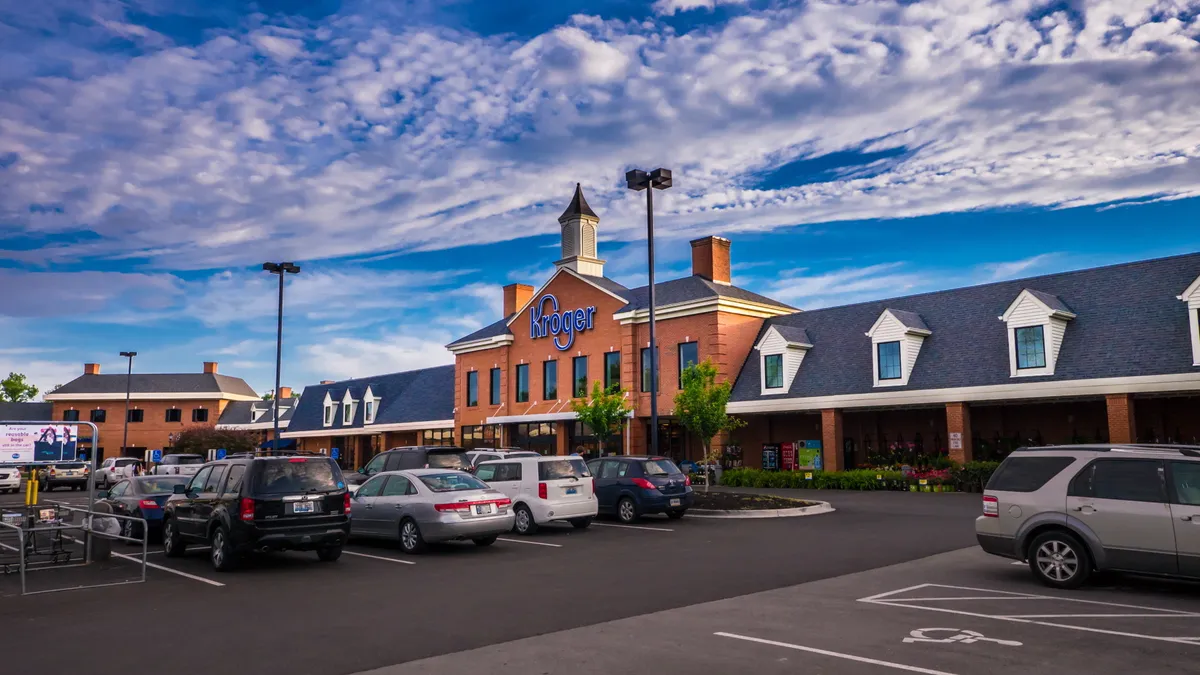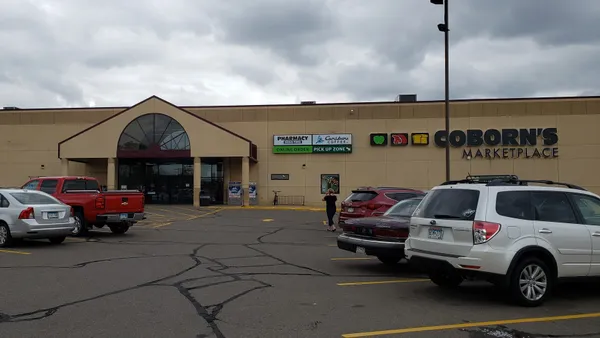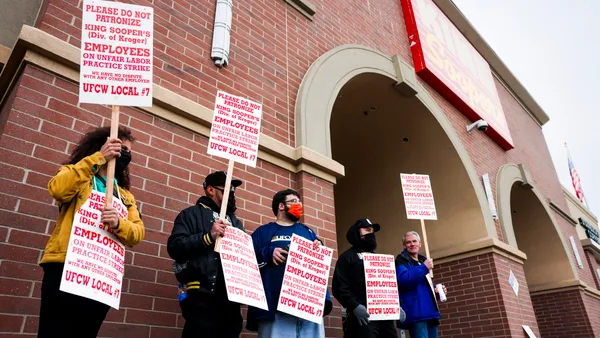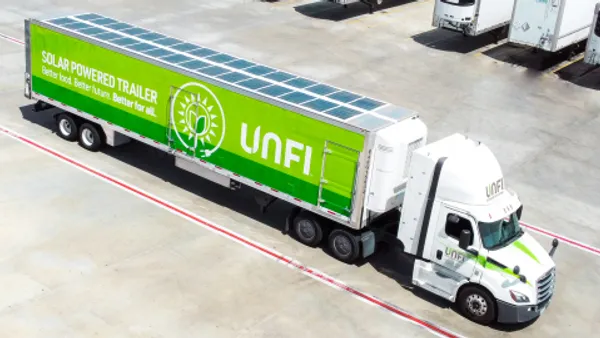Dive Brief:
- Kroger has agreed to purchase Albertsons in a deal worth approximately $24.6 billion, the rival supermarket chains announced Friday morning. The companies expect the deal to close in early 2024, subject to regulatory approval.
- Albertsons is prepared to establish a subsidiary immediately prior to the completion of the merger to operate as a standalone public company, which would have between 100 to 375 stores, to satisfy regulatory approval.
- The combination will give Kroger a presence in 48 states and the District of Columbia. Kroger Chairman and CEO Rodney McMullen will remain in those roles after the merger is complete.
Dive Insight:
A combined Kroger and Albertsons promises to create a supermarket chain with the scale and consumer reach capable of rivaling non-grocery competitors like Walmart, Amazon and Dollar General that have so heavily pressured the industry in recent years.
Both supermarket chains have gained considerable size through years of regional acquisitions. Kroger has built its coast-to-coast empire by picking up chains like Harris Teeter, Mariano’s and Fred Meyer, while Albertsons has pieced together various grocery brands, most notably Safeway, which it acquired in 2015.
But despite their large scale individually, Kroger and Albertsons have struggled for years to compete with the likes of Walmart, the market share leader in grocery, on price and convenience. Those gaps have become all the more glaring as inflation has risen and more shoppers look to discount outlets to get the groceries they need.
Greater size and scale would give a combined Kroger and Albertsons more power to negotiate lower prices with suppliers and take advantage of operational efficiencies, Neil Saunders, managing director with GlobalData Retail, wrote in a Thursday note.
“Such consolidation would, in theory, improve the economics for both businesses giving them even more buying power than they currently enjoy and providing an opportunity for significant savings in central operations,” he wrote.
Kroger and Albertsons also face a future in which digital shopping promises new growth and opportunities but also higher costs. E-commerce, which has opened up new ways of shopping for consumers, is pressuring margins considerably, and enhanced scale can help alleviate some of that burden, said Bobby Gibbs, principal with retail consulting firm Oliver Wyman. Scale can also benefit grocers’ budding retail media operations by enhancing consumer reach and boosting retailers’ negotiating power, Gibbs noted.
Building scale also lowers companies’ cost to capital, Gibbs noted, unlocking new investment opportunities. “Having better and cheaper access to capital will continue to be a competitive advantage” in the grocery industry, he said.
Combined, Kroger and Albertsons currently employ more than 710,000 associates and operate 4,996 stores, 66 distribution centers, 52 manufacturing plants, 3,972 pharmacies and 2,015 fuel centers.
However, experts agree that the proposed merger will come under considerable scrutiny from federal regulators. Kroger and Albertsons stores serve many of the same markets in states like Illinois, California and Washington.
“Expect plenty of antitrust scrutiny as the two grocers have plenty of store overlap in several of the markets they compete in,” Arun Sundaram, an equity analyst with CFRA Research, wrote. “Also, regulators are likely to question whether consolidation could stifle competition and drive food prices even higher.”
CFRA estimates that Kroger controls an 8% market share in grocery retail, while Albertsons has 5% share, while Walmart accounts for 25% of the market.
Despite their comparable size, Albertsons and Kroger have pursued opportunities like e-commerce and private label in different ways that could make combining the two companies’ operations challenging. Kroger is investing heavily in a proprietary e-commerce network driven by large, automated warehouses, while Albertsons has opted to outsource much of its delivery operations to third-party companies like Instacart and DoorDash. Albertsons’ stores tend to be in “inferior” condition compared to those operated by Kroger, Saunders noted.
At the same time, the two companies’ strengths — including Kroger’s private label business and Albertsons’ strong footprint in the Northeast, where Kroger doesn’t operate any stores — could help create a stronger whole, Saunders noted.
“From Albertsons’ point of view, Kroger’s superior expertise in private label development, its advanced ecommerce operations, and its customer insights program are all major advantages that can help the group’s various banners,” he wrote.




